In a surprise move, Pakistan, one of the 110 countries invited to U.S. President Joe Biden’s Summit for Democracy, skipped the event. Its Ministry of Foreign Affairs offered an oblique statement, thanking the administration for the invitation, and saying that it looked forward to engaging with the U.S. on democracy “at an opportune time in the future.”
Why Pakistan was invited
Pakistan is the fifth largest country in the world — and has a functioning, albeit flawed democracy. The shortcomings primarily stem from the dominance of its military, which exercises influence over key elements of the country’s security and foreign policy. But in a break from periods of military rule in the past, since its 2008 election Pakistan has had successful transitions of power from one civilian government to another via elections. It also has a robust political opposition.
To be sure, Pakistan has a troubled human rights record, including suppression of dissidents from its Baluch and Pashtun ethnic minorities, and cases of mob vigilante violence against those accused of blasphemy, including the horrific killing of a Sri Lankan factory manager on December 3. Given these failings, some considered Pakistan’s invitation contentious, and argued it was inconsistent given the other countries in the region that were left out, such as Bangladesh (albeit itself a flawed democracy). But the invitations went out to a range of countries with questionable records on human rights. More importantly, for America — which has all too often bolstered Pakistan’s military at the expense of its civilian leaders, especially in dealings involving Afghanistan for the last four decades — the invitation was an important signal of support for Pakistan’s democracy. It also balanced India’s invitation with one to a regional rival. It is an invitation Pakistan should have accepted.
Pakistan’s reasons for skipping the summit
Last November, in a statement congratulating Biden for his election win, Pakistan’s Prime Minister Imran Khan specifically mentioned that he looked forward to the Summit for Democracy and to working with the White House to counter corruption. But the intervening year has brought a cold shoulder from the Biden administration toward Pakistan and specifically toward Khan, who is yet to receive a phone call from Biden (the issue of the phone call has been the subject of considerable attention in Pakistan). For Pakistan, which had enjoyed a good relationship with the Trump administration, especially during its latter half, with Khan and Trump having personally hit it off — hopes for a broadening of the U.S.-Pakistan relationship with Biden have not materialized. Given the Taliban’s swift takeover of Afghanistan this year (and Pakistan’s long-standing support for the group), the mood in Washington has been dour — though two congressional delegations have visited Pakistan in recent weeks, including a four-member Senate delegation over the weekend, ostensibly to discuss Afghanistan. The Biden administration has narrowed the scope of the relationship to limited engagement on Afghanistan — and given the lack of a phone call, made clear that high-level engagement is not a priority. Khan and his government have perceived that as a snub, and that is part of the subtext for the declined invitation. Khan, who has made clear that he wants a relationship with the U.S. that values Pakistan’s sovereignty, is likely to find support for the decision at home.
The second and perhaps larger factor is China. Pakistan and China are exceedingly close partners, and Pakistan is the flagship venue for Beijing’s Belt and Road Initiative — the China-Pakistan Economic Corridor promises $62 billion worth of Chinese economic investments in Pakistan. The two countries also have a long-standing military and strategic partnership that dates back to the 1960s. In a speech last week, Khan said that Pakistan did not want to be part of any “bloc” and wanted instead to bridge gaps between the U.S. and China. Lijiang Zhao, a Chinese foreign ministry spokesman, tweeted that Pakistan had declined to attend the summit and was a “real iron brother.” The underlying message is that Pakistan declined the invitation in support of China, which has shown displeasure over Taiwan’s inclusion. In fact, a source at Pakistan’s foreign ministry directly told The Guardian that Pakistan was not attending as China was not invited.
(This may also say something about the summit more broadly — that some countries perceived it as an event that required them to make a choice between the U.S. and China, rather than a meeting to advance the cause of democracy — that the Biden administration should note.)
Why skipping the summit is a mistake on Pakistan’s part
The invitation was in effect an opening offered by the Biden administration to Pakistan. It provided a chance for Pakistan to present its perspective to a global audience that is not always inclined to view it kindly — including regarding its democratic progress and aspirations. But Islamabad gave up the platform the summit offered, and spurned the chance to be at the table when discussing key issues on which many question its commitments: those of human rights and democracy. That is a mistake.
Pakistan has also repeatedly said that it doesn’t want its relationships with the U.S. and with China to be seen as zero-sum, and that it wants good relationships with both countries. But if Pakistan chose not to attend a global summit held by the U.S. to show its support for China, Pakistan has effectively chosen a side: China’s.
If skipping the summit was a response to Biden’s cold shoulder to Khan, Pakistan could have sent the foreign minister as a delegate. Skipping the summit altogether is a move that will clearly be noted by the Biden administration — and if Pakistan wants to improve ties with it, it’s a puzzling decision that will almost certainly have left a sour taste.
The Brookings Institution is committed to quality, independence, and impact.
We are supported by a diverse array of funders. In line with our values and policies, each Brookings publication represents the sole views of its author(s).

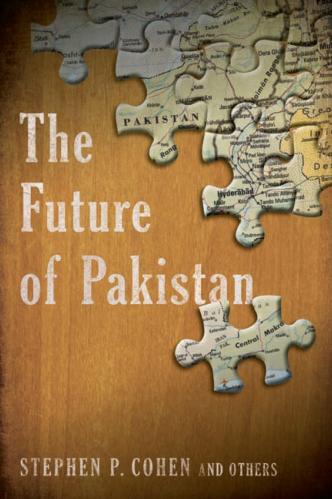
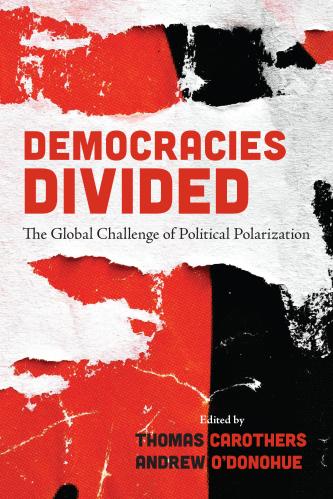
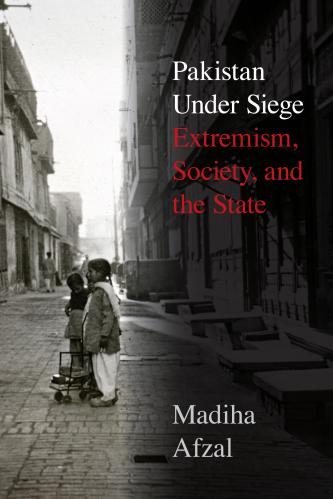
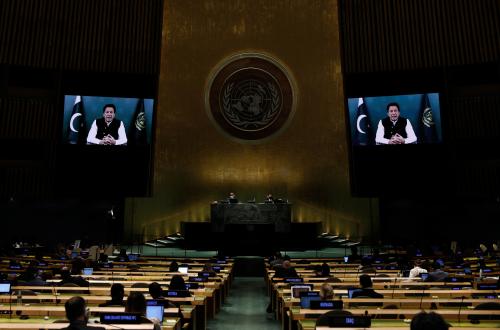

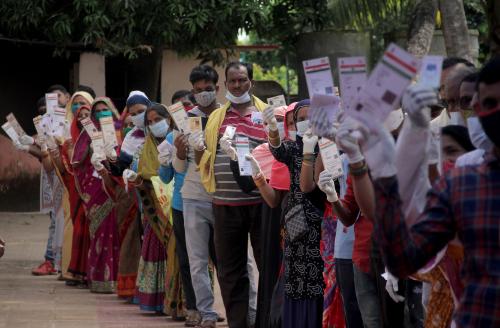

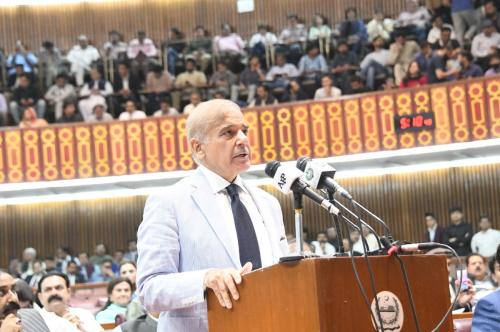

Commentary
Pakistan skipped the US Summit for Democracy. Why?
December 13, 2021